PROGRESS – VIDEO & ARTICLE:
A handful of Alzheimer’s patients signed up for a bold experiment: They let scientists beam sound waves into the brain to temporarily jiggle an opening in its protective shield, called the “Blood-Brain Barrier”.
This is how it works.
Charlottesville, Virginia – The results of a groundbreaking clinical trial of focused ultrasound to open the blood-brain barrier (BBB) in patients with Alzheimer’s disease were published in Nature Communications and also presented at the Alzheimer’s Association International Conference (AAIC).
The pilot trial demonstrated the feasibility and preliminary safety of focally, reversibly, and repetitively opening the BBB.
Delivering Drugs to the Alzheimer’s Brain
“This groundbreaking trial is the first small but critically important step in a process that could potentially lead to a novel approach to delivering drugs to the brain to treat Alzheimer’s disease,” said Neal F. Kassell, MD, founder and chairman of the Focused Ultrasound Foundation. “This study widens the horizon of possibility for focused ultrasound to become a treatment option for many neurological disorders by demonstrating that the technology can, in fact, be used to open the blood-brain barrier to allow drugs in higher concentrations, and those that may otherwise be excluded, to reach the brain.”
The study, “Blood-Brain Barrier Opening in Alzheimer’s Disease Using MR-guided Focused Ultrasound,” was conducted at Sunnybrook Health Sciences Centre in Toronto under the direction of Nir Lipsman, MD, PhD, Director of the Harquail Centre for Neuromodulation, and used Insightec’s Exablate Neuro device. The Focused Ultrasound Foundation funded and facilitated the organization of the trial.
Six Alzheimer’s Patients
Six Alzheimer’s patients, ages 50-85, underwent two noninvasive focused ultrasound procedures. For the first stage, focused ultrasound was applied in a small area of the brain to temporarily open the BBB. In the second stage, approximately one month later, a similar procedure to the same patient targeted a larger area of the brain. It is important to note that this trial was a feasibility and safety study to see if focused ultrasound can be used to repeatedly open the BBB temporarily in these patients, and no drugs were administered in the study.
Dr. Lipsman is presenting data from this study today at AAIC and taking part in a panel discussion regarding the application of focused ultrasound to treat or manage Alzheimer’s disease. Other panelists include Kullervo Hynynen, PhD (Sunnybrook Research Institute); Isabelle Aubert, PhD (Sunnybrook Research Institute); Cynthia Lemere, PhD (Brigham & Women’s Hospital/Harvard University); and Jürgen Götz, PhD (Queensland Brain Institute).
Opening the BBB (Blood-Brain Barrier)
“By successfully opening the BBB safely and reversibly in patients with early to moderate Alzheimer’s disease, we can support the continued investigation of focused ultrasound as a potential novel treatment, and further study the delivery of therapies that otherwise cannot access the brain,” said Dr. Lipsman. “While it is still early in development, focused ultrasound may in the future provide a noninvasive, effective way of delivering large molecules such as antibodies directly to the brain to help patients with Alzheimer’s.”
The next phase will investigate the safety and efficacy of using focused ultrasound to breach the BBB in a larger group of patients with Alzheimer’s in a Phase 2a trial beginning this fall.
“This research using Insightec’s Exablate Neuro device is truly groundbreaking as it explores a new application for focused ultrasound,” says Maurice R. Ferré, MD, Insightec’s CEO and Chairman of the Board of Directors. “The disruption of the BBB has the potential to break down the barriers to treatment options in the brain with the promise to help millions of patients around the globe.”
Focused Ultrasound Therapy for Alzheimer’s
Focused ultrasound is an early-stage, non-invasive, therapeutic technology with the potential to improve the quality of life and decrease the cost of care for patients with Alzheimer’s disease. This novel technology focuses beams of ultrasonic energy precisely and accurately on targets deep in the brain without damaging surrounding normal tissue. Where the beams converge, the ultrasound produces a variety of therapeutic effects without incisions or radiation.
Currently, there is no cure for Alzheimer’s and few disease modifying therapies. Potentially promising drug and antibody therapies are often limited by their inability to efficiently cross the blood-brain barrier (BBB), a naturally occurring barrier of cells that inhibits the diffusion of drugs or toxins into the central nervous system.
Promising preclinical studies have demonstrated the potential of focused ultrasound to enhance the delivery of therapeutic drugs or antibodies to the brain. Focused ultrasound in combination with microbubbles can safely open the BBB and enable enhanced delivery of anti-amyloid antibodies to the brain. Studies suggest that this method can reduce the number of plaques and improve cognition in Alzheimer’s disease models. Furthermore, focused ultrasound and microbubbles alone (no antibodies) have had similar effects in two different Alzheimer’s models.
Based on this preclinical evidence, this human trial investigating repeated, temporary opening of the BBB in patients with mild to moderate Alzheimer’s disease was completed.
Advantages
- Focused ultrasound is non-invasive – no incisions, holes in the skull, electrodes in the brain – and therefore has reduced risk for infection and blood clots.
- Precise targeting minimizes damage to non-targeted healthy brain.
- Treatment can be a complement to drug therapy, enabling enhanced delivery of disease-modifying therapies into the brain via temporary opening of the blood-brain barrier.
Helpful Links
See here for a list of treatment sites
See here for a list of clinical trials sites
See here for a list of laboratory research sites

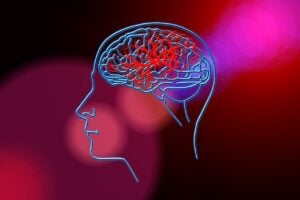

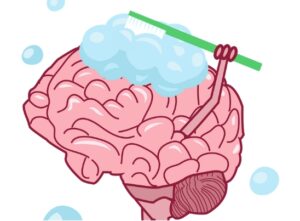
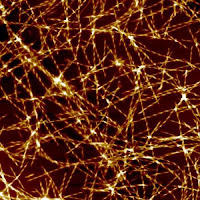

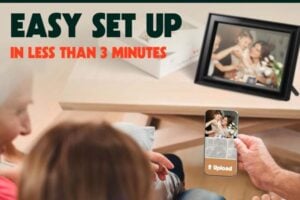



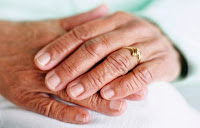

i was diagnosed 2011. i was diagnosed with the bulbar form of ALS and was given one year to live. My symptoms progressed quickly. Soon i was having difficulty breathing, swallowing and even walking short distances. With the help of Natural Herbal Garden natural herbs I have been able to reverse my symptoms using diet, herbs, which i feel has made the most difference. The ALS natural formula immensely helped my condition, it reversed my ALS. my slurred speech. And then the inability to eat without getting choked, breathing, and coughing. gradually disappeared. Visit NATURAL HERBAL GARDENS via their official web-site www. naturalherbalgardens. com. I’m now playing golf again. and i turned 69 today. i am glad to get my life back DON’T GIVE UP HOPE!!!
How bad was your als were you still driving when you took the herbs